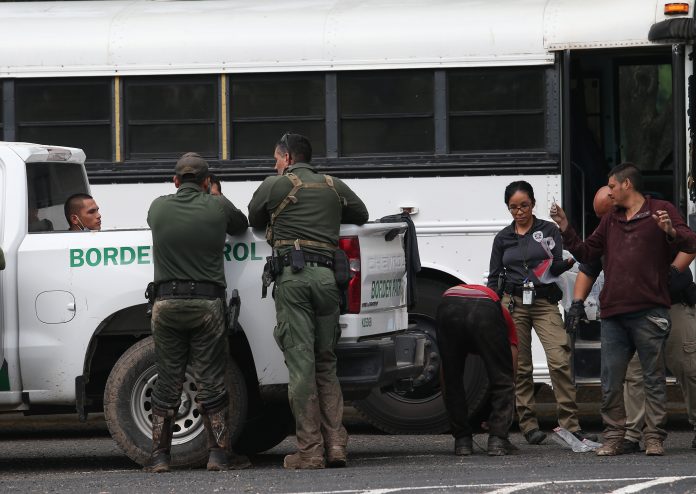
A public health policy used to expel migrants back to Mexico since the start of the pandemic might soon be lifted, but the changes may not be felt immediately along the border and Rio Grande Valley.
Title 42, a public health policy used to send asylum seekers back to Mexico, was put in place in March 2020 by the Trump administration and was intended only as a temporary measure until the global health crisis subsided.
But on Tuesday, as part of an ongoing lawsuit against the Department of Homeland Security in the District of Columbia, U.S. District Judge Emmet G. Sullivan issued an order to stop the further implementation of Title 42.
The court declared the policy “arbitrary and capricious” and said it violated the Administrative Procedure Act. It also ordered the federal government to permanently stop applying it.
Under the authority of this policy, Border Patrol agents and CBP officers have sent back asylum seekers nearly five million times since 2020.
As a result, the number of migrants released from federal custody in McAllen and Brownsville has decreased drastically. But that can soon change.
The U.S. Customs and Border Protection office, which oversees Border Patrol agents and Office of Field Operations officers, did not respond to a request for comment as of Tuesday evening.
“It looks like it’s gonna be a slow process,” said Victor Cavazos, co-director of the Sidewalk School, a nonprofit organization helping migrants in Tamaulipas and Brownsville.
Organizations like the Sidewalk School and Team Brownsville mobilize to help migrants when they are released in great numbers in Cameron County, while Catholic Charities of the Rio Grande Valley shelters migrants released in McAllen.
Sister Norma Pimentel, executive director at Catholic Charities of the Rio Grande Valley, said she’s aware of the changes that could come, but added that a court decision from Louisiana could keep the policy in place longer.
“We know that there’s another case in Louisiana,” Cavazos added. The other case in Louisiana, in which Texas is a defendant, sued to keep Title 42 in place when the CDC nearly ended its implementation over the summer.

Texas Gov. Greg Abbott called Tuesday’s court’s decision “disastrous.”
“This will further signal to cartels, human smugglers, & illegal immigrants that the border is wide open — inciting more violence & lawlessness,” the governor said Tuesday on social media.
Advocates who filed the lawsuit in D.C. against then-president Donald Trump in 2020, including the Texas Civil Rights Project, called the decision a win, though they said they had to continue fighting the Biden administration, which defended its use and implemented it as an immigration tool.
“We expect that without Title 42 in place, the U.S. will have the ability and the capacity to process people — it’s a matter of will,” Karla Marisol Vargas, a senior attorney with the Beyond Borders Program at the Texas Civil Rights Project, said Tuesday via a statement. “TCRP has been fighting to end this policy for years in the courts, and at every turn the Biden administration has fought to keep it in place.”
On the border, those who help migrants, like the Sidewalk School, will prepare but will carry on helping migrants in Mexico
“We’ve been through this before, especially with Title 42, where it’s supposed to be removed. And then we have all these meetings, we get really excited and then something comes and it stops,” Felicia Rangel-Samponaro, co-director of the Sidewalk School said. “Everything will continue on as is. We’ve learned that, now doing this for years, nothing is overnight in this process.”
Rangel-Samponaro said nonprofit organizations will be meeting soon to discuss how to address the pending changes.



